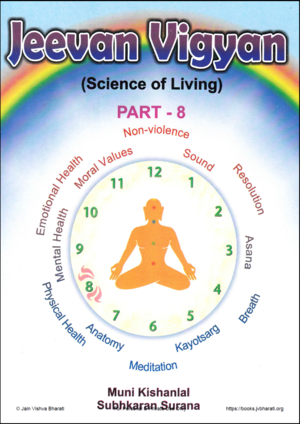WHAT KIND OF FOOD SHOULD WE EAT?
To answer this question, we should keep the following in mind. We should eat such food:
- Which gets digested soon;
- Which maintains the right body weight;
- Which gives us all the energy we need;
- Which gives agility to the body, coolness to the temper and happiness to the mind and
- Which makes us look beautiful and gives a glow to our skin
WHAT SORT OF FOOD ONE MUST AVOID?
To answer this question, we must consider the following:
Now we will proceed in stages to discuss the changes to be effected in our diet so as to regulate it according to our body needs. We will also consider the suggestion propounded by the present day dieticians to improvise the same.
FIRST STAGE
We should gradually drop all such food items from out diet that contain chemical preservatives, colour and essence. Consumption of sugar in all forms should be reduced. It is better to use jaggery (gur) and honey in place of sugar. The flour used for making chapattis should not be sieved. Maida and fried food stuff should be avoided. Natural salt is better than chemical salt. People who eat non-vegetarian food should try to give it up. If they cannot do so altogether, they should try to reduce the quantity of non-vegetarian food from their diet gradually.
SECOND STAGE
Reduce the use of black pepper, chillies and other harmful spices. Jeera, turmeric (Haldi), and coriander (Dhania) are health-giving spices. Milk, fruit juice and fresh seasonal fruits are conductive to health and give energy.
THIRD STAGE
By increasing the contents of grain, dry fruits, kennelled fruit, vegetables, salad and curd in regulated quantity in our food, we obtain a nourishing diet. We should have germinated grains, milk and fruit for breakfast. Those who habitually take non-vegetarian food, must try to abstain from it completely.
Now we may turn to certain other mannerism related to the process of intake of food and drinks:
GUIDELINES FOR DINING
Appetite and sound sleep are most important for leading a healthy life. A good appetite and the capacity for sound sleep are like crossing the threshold of the depths of human mind. When these two are suitably enjoyed, man becomes ready to embark upon a spiritual life. His life becomes full of pleasure and delight. Today's man is leading a so called advanced life but he is losing his appetite and sleep in the converse ratio. He is going away from a life promising him happiness.
EXERCISE
- What are the dos and don't s in respect of food?
- If your diet is not sensible, how will you improve upon it?
- Discuss the guidelines related to eating.
